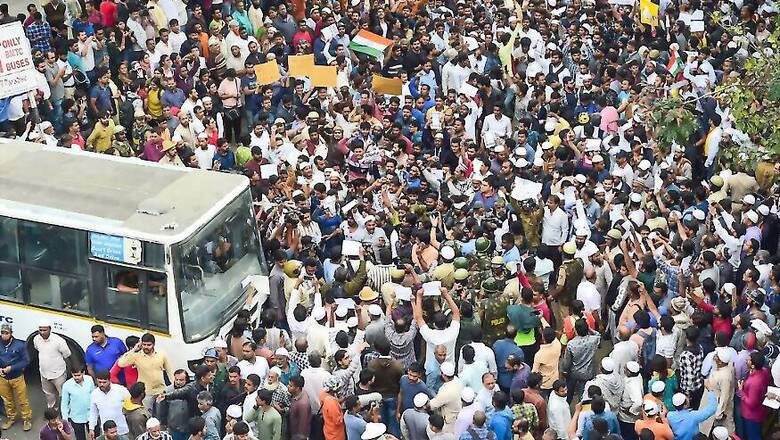
views
Bengaluru: The Karnataka High Court on Friday said it will check the legality of the prohibitory orders implemented from December 19 to 21 while it rapped the BS Yediyurappa government for imposing section 144 in Bengaluru and other parts of the state.
“Are you (state) going to ban each and every protest. How can you cancel permission previously granted following due course of process?” Chief Justice Abhay Shreeniwas Oka said while hearing a clutch of petitions against the clampdown on demonstrations to oppose the Centre’s amended Citizenship Act.
The court also directed the advocate general (AG) to check whether the police granted permission for holding protests but later revoked it after imposing section 144 of the CrPC. The AG will have to submit his reply at 4 pm.
Parliament passed the Citizenship (Amendment) Bill, 2019 last week and it became law after receiving assent from President Ram Nath Kovind. But the move has sparked protests across the country, with university students, artistes and intellectuals mainly at the forefront.
The Act seeks to grant Indian citizenship to Hindu, Christian, Sikh, Buddhist, Jain and Parsi refugees fleeing religious persecution from Pakistan, Afghanistan and Bangladesh, and who entered India before January 1, 2015.
“Can the state proceed on assumption that every protest will become violent? Can an author or artist not hold a peaceful protest if he disagrees with any decision of the government,” the judge asked.
Several protesters including historian Ramachandra Guha and many students were detained during protests in parts of Karnataka on Thursday. All of them were reportedly released later.
"Do you really want to take students to the police station?" Chief Justice Oka asked a startled advocate general, when one petitioner pointed to this concern.
Though prohibitory orders under section 144 are in place only till Saturday, the court said the legality of it will be looked into even after tomorrow.

















Comments
0 comment